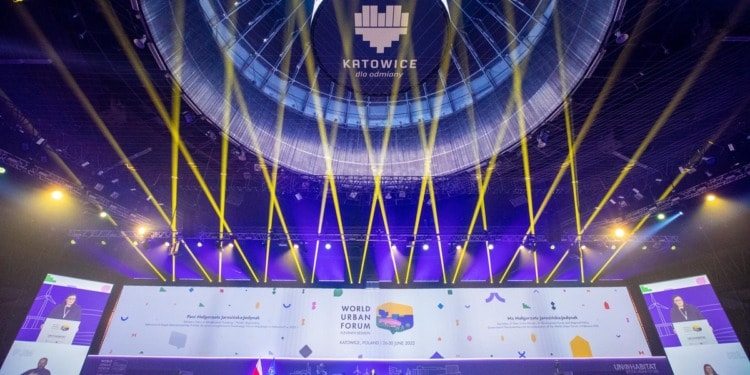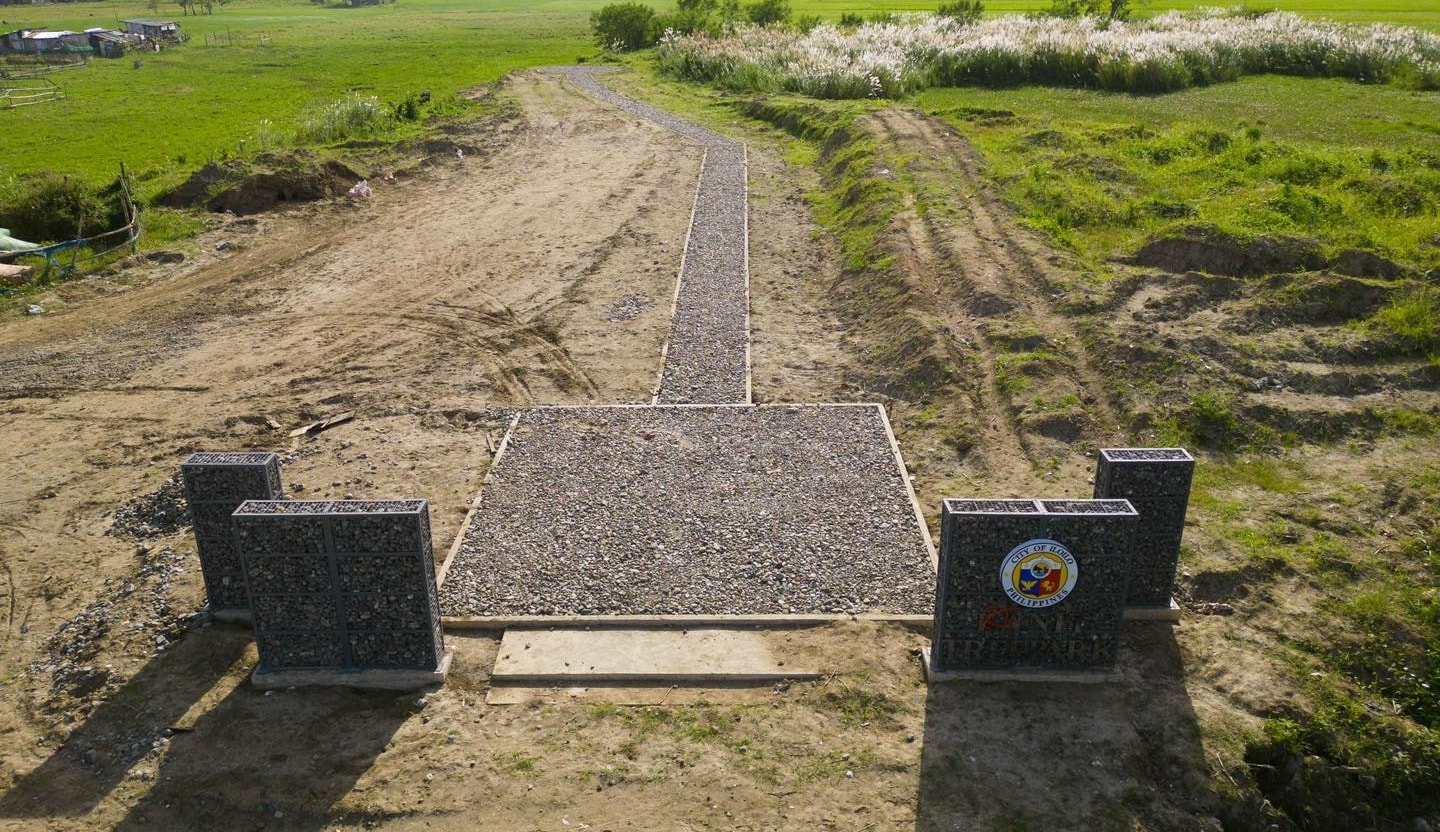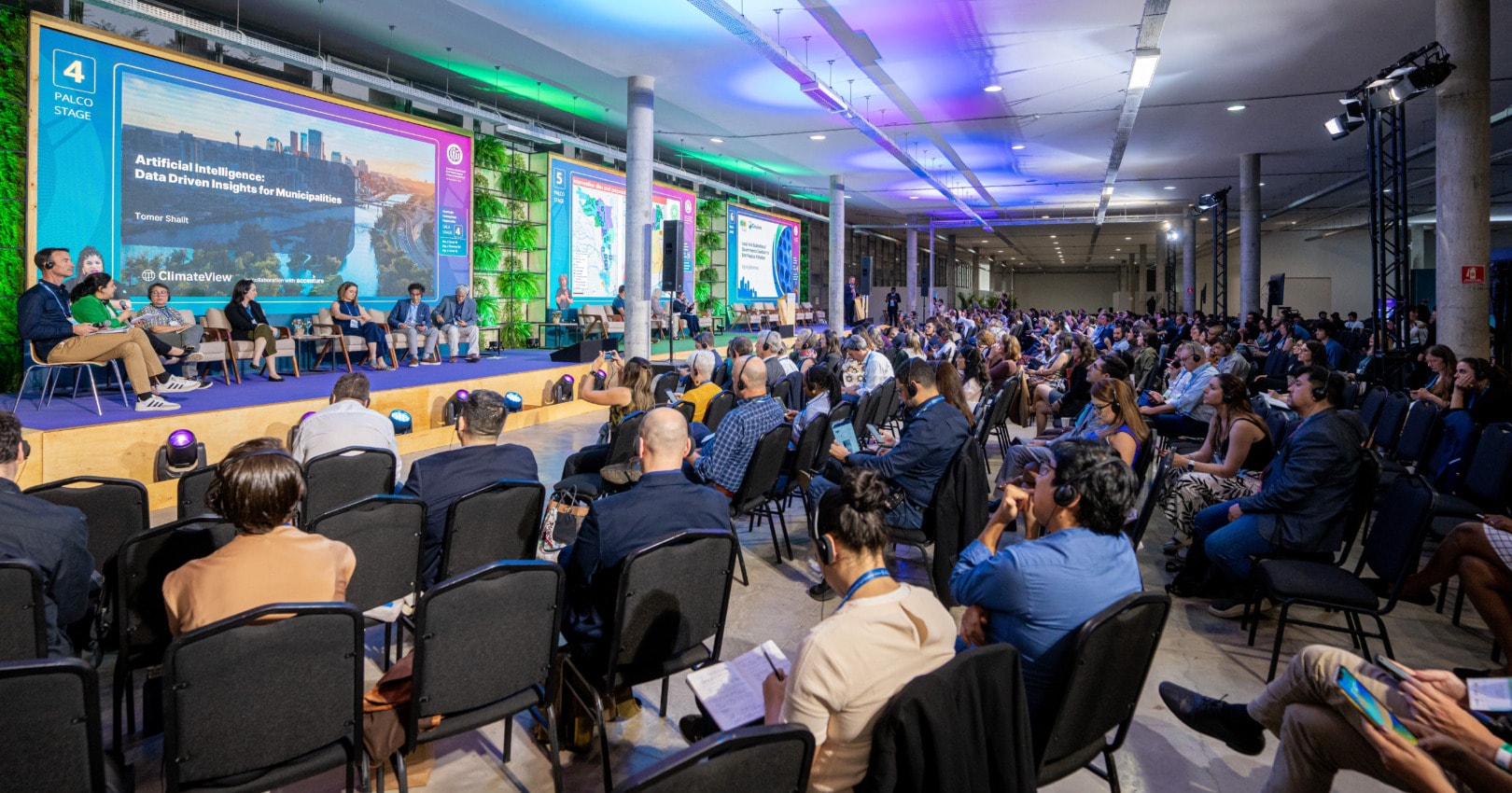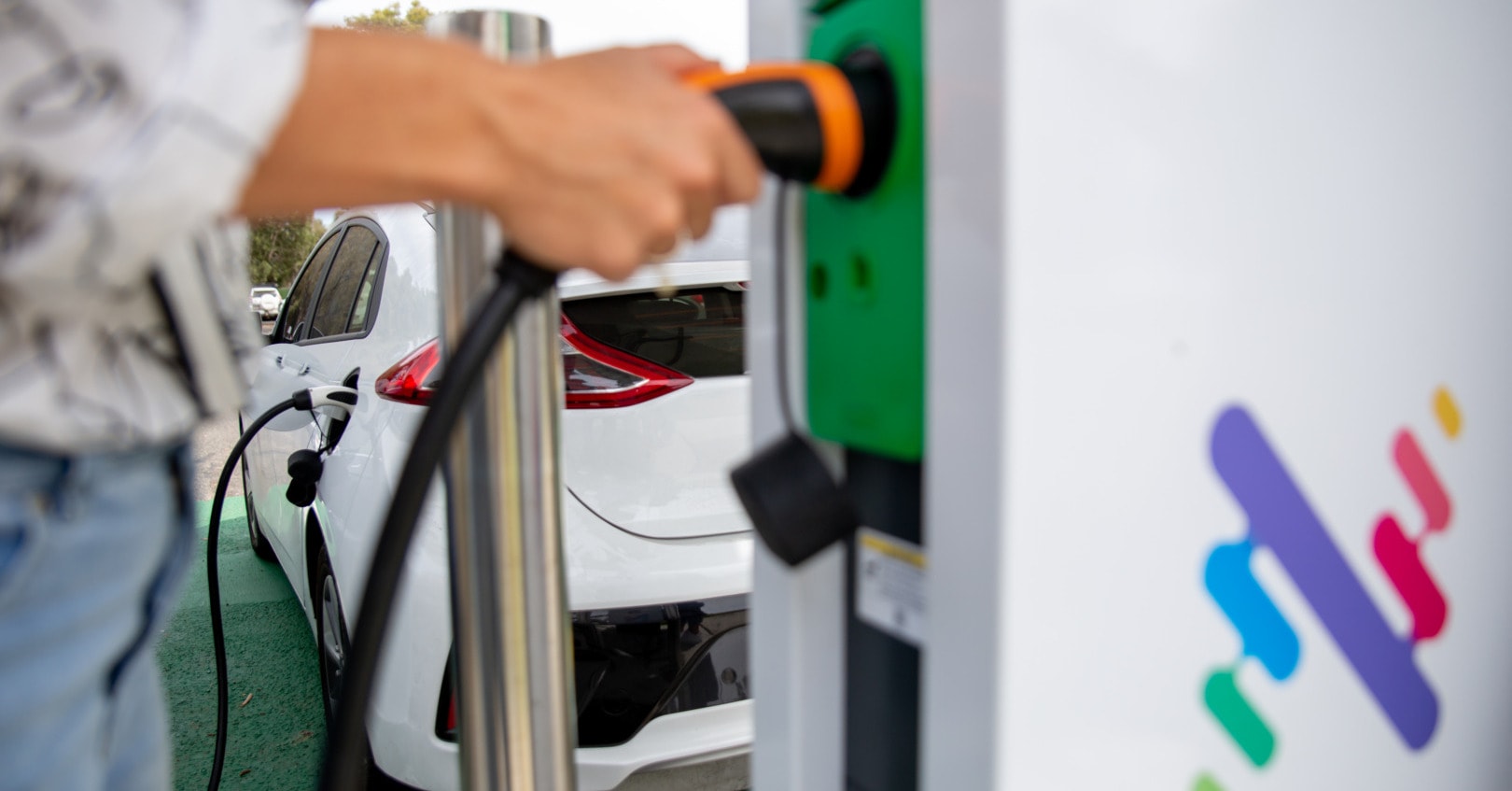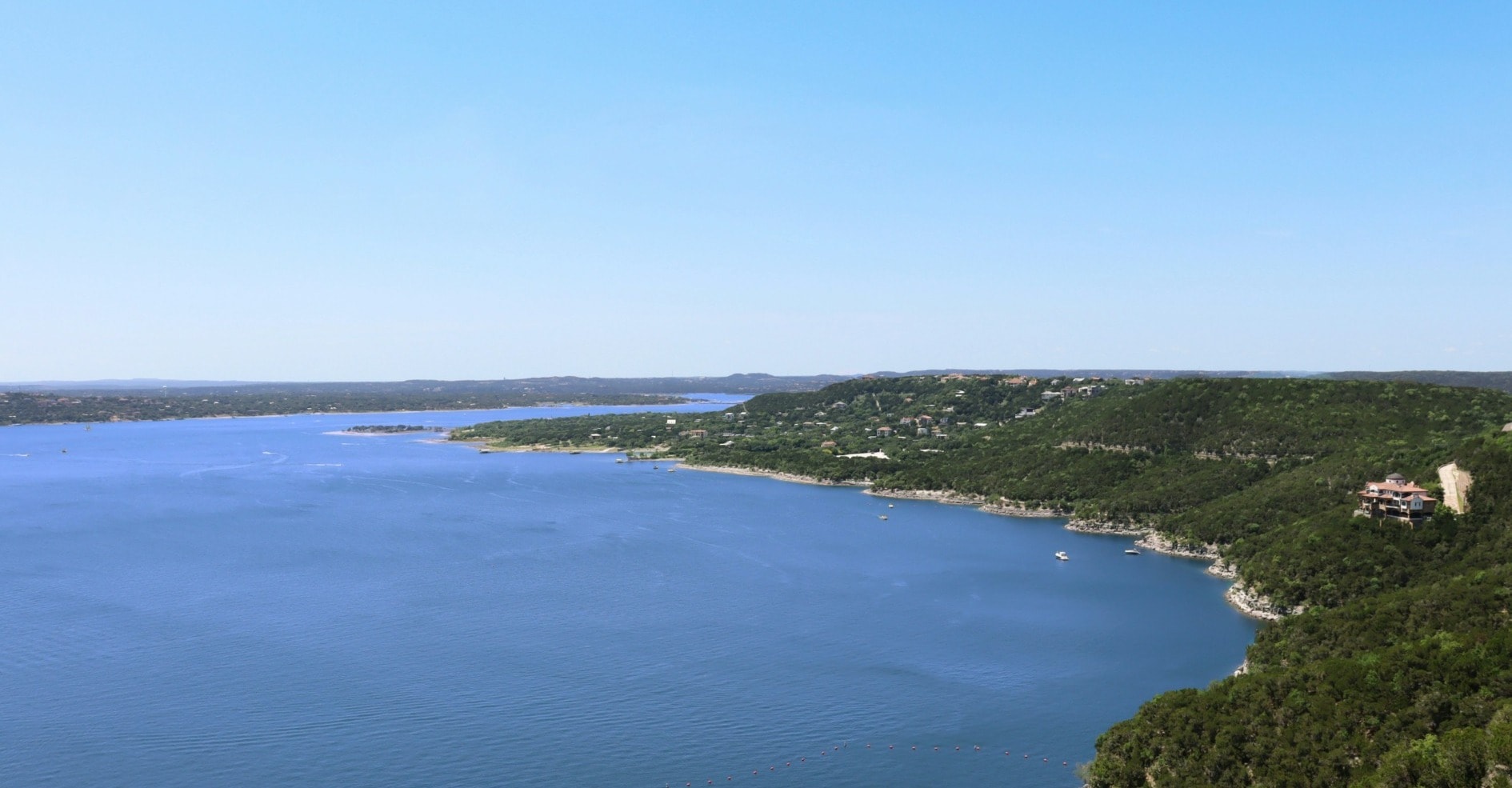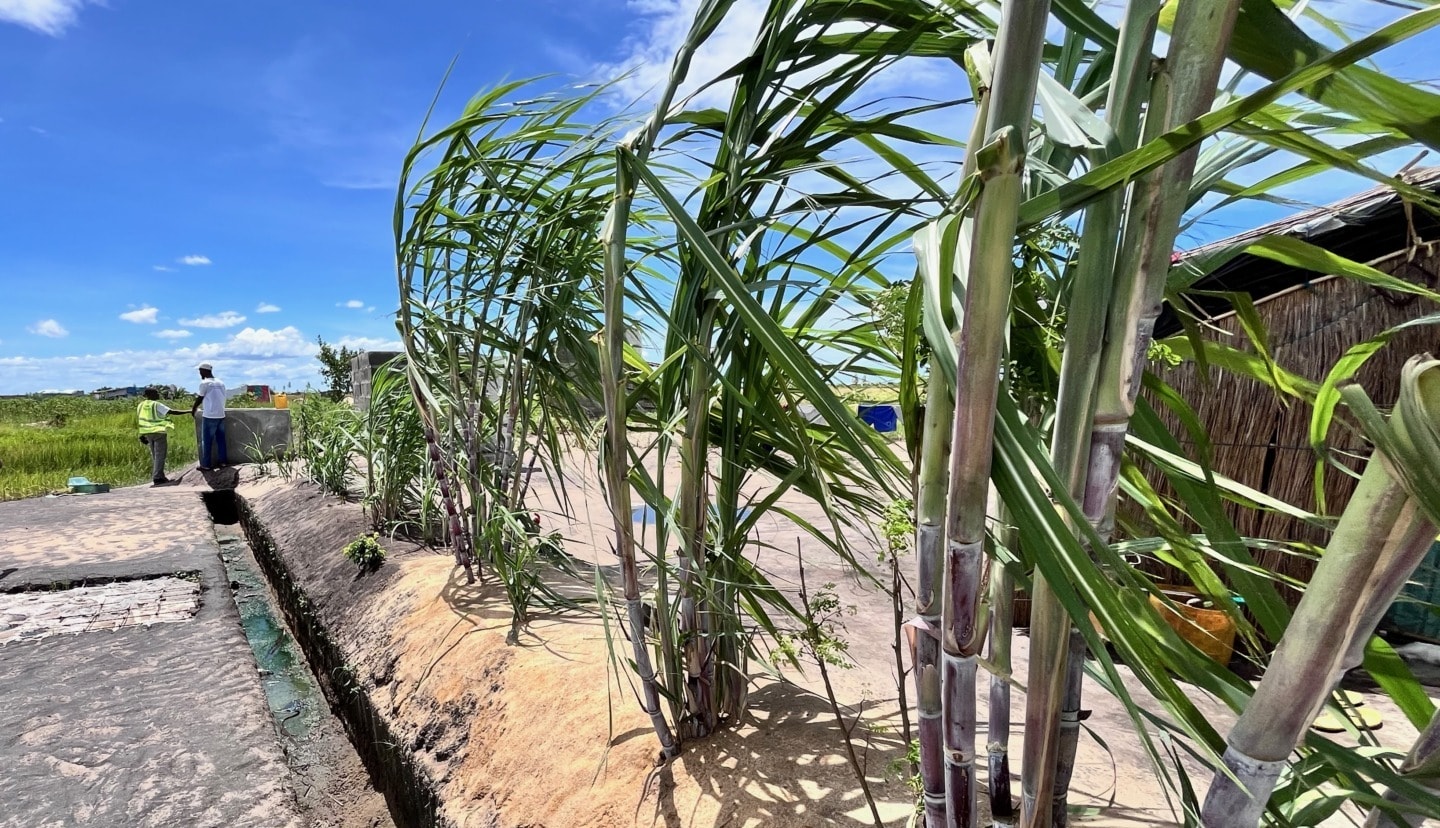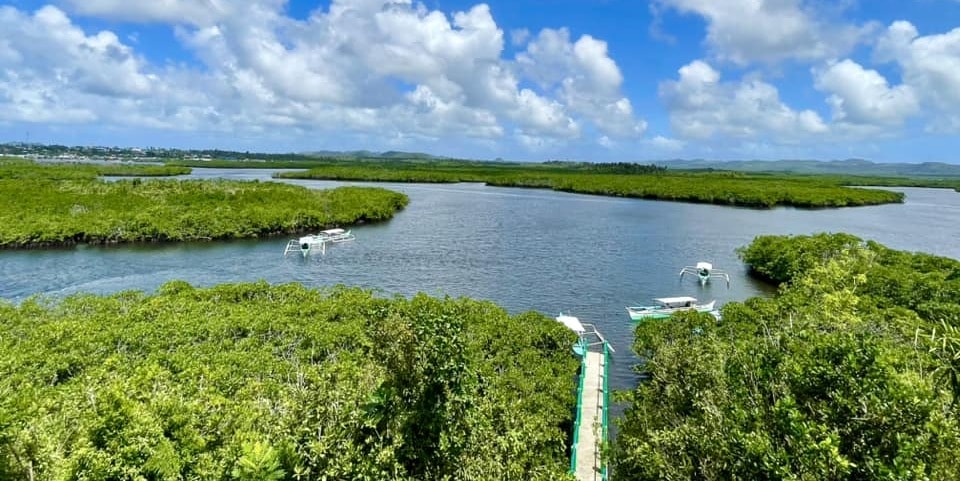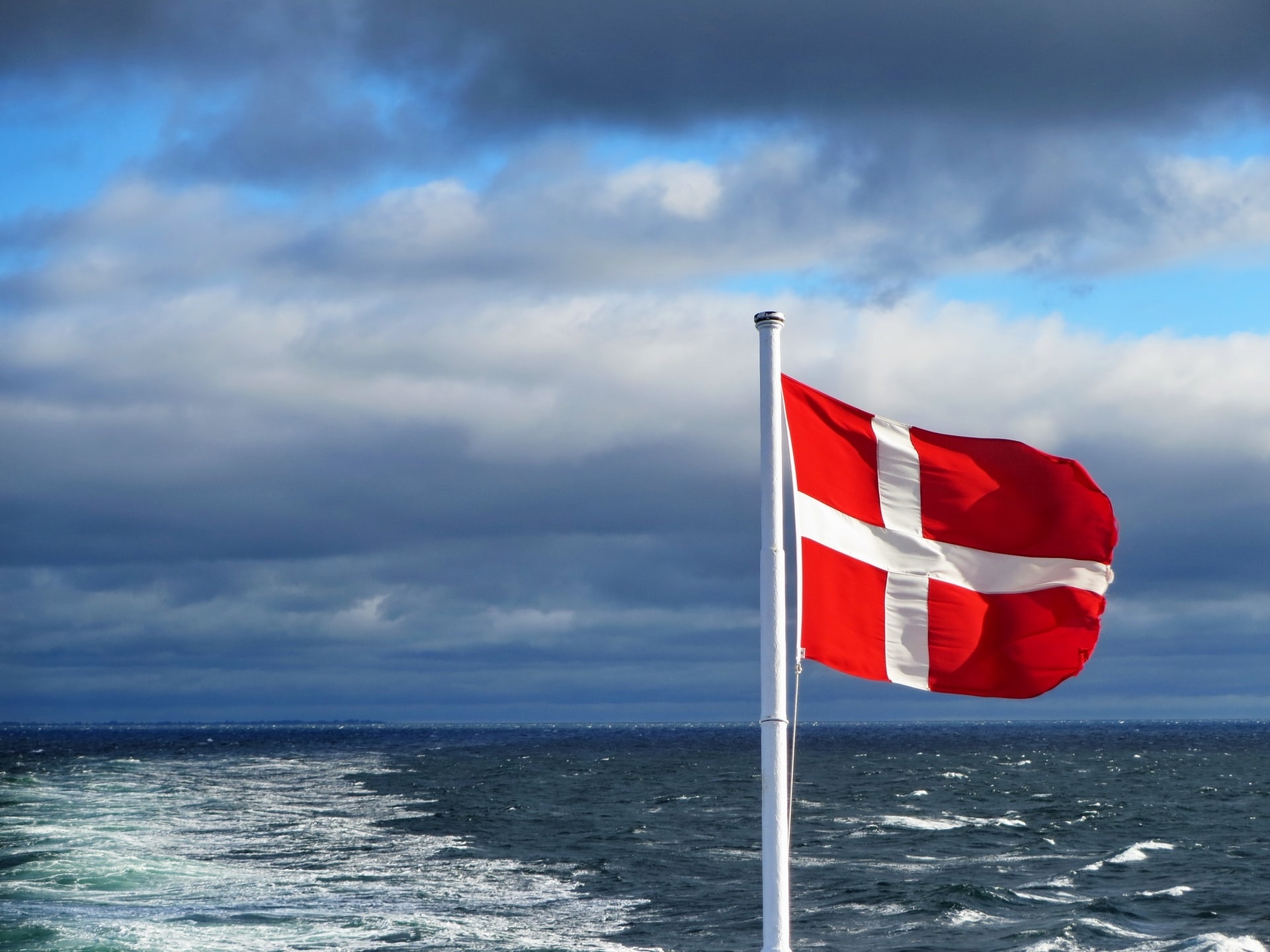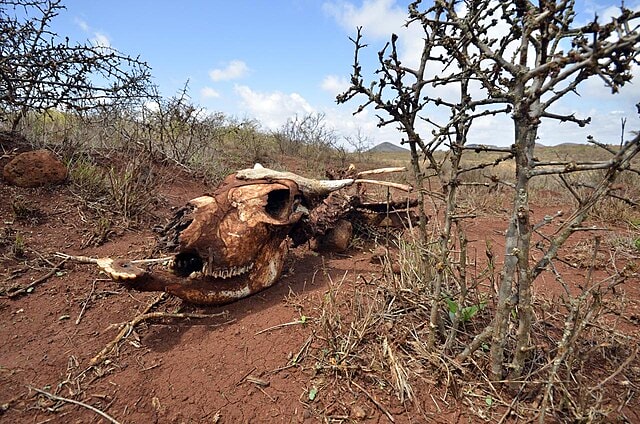This year (2022) ICLEI member Katowice (Poland) hosted the 11th World Urban Forum, the first time that the forum took place in Central/Eastern Europe.
WUF in the city – 11 zones in the center of Katowice.
Miasto360 @OPM_irmir was visited by 1,200 participants of the World Urban Forum!
WUF11, Katowice, June 26-30#WUF #UNHabitat #MFiPR #MCK@WUF_UNHabitat @YC_WUF11 @BiuroPrasoweKce pic.twitter.com/ja1da9duzP
— WUF11 (@WUF11cotf) July 22, 2022
Katowice is a former mining town in the process of transforming its industrial legacy towards becoming a sustainable city that improves air quality, builds smart and green infrastructure, and works on community revitalisation without forgetting its heritage.
With its overarching theme, “Transforming our cities for a better urban future,” this was a great stage for ICLEI to showcase its diverse work towards low-emission, green, resilient, circular, and equitable cities.
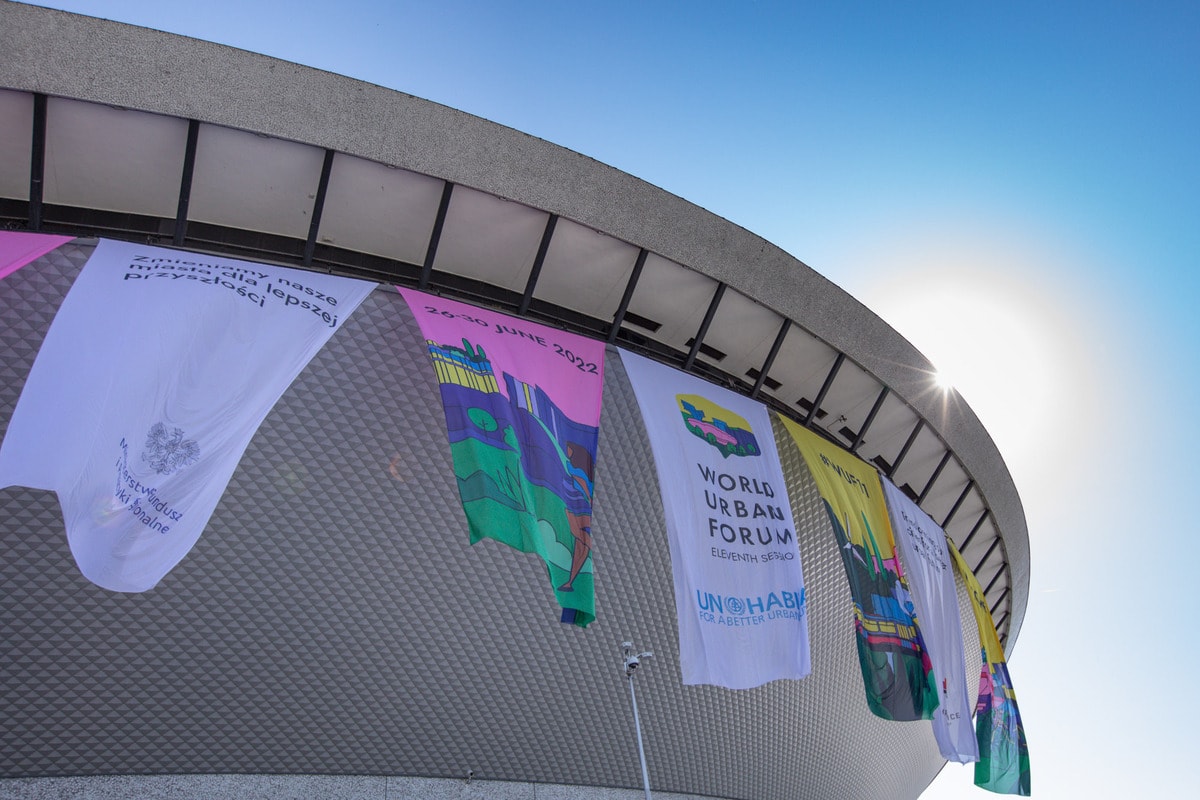
In Katowice, ICLEI was represented by colleagues from the World Secretariat, as well as its offices in Europe, Asia, and Africa, allowing for a truly global perspective, emphasising that urban sustainability is not just a western priority.
The Urban7 sessions in particular showed that local governments in Latin America, Asia, and Africa are all taking innovative actions that put their cities on the right path towards the future and that there is plenty of room for multilevel cooperation and knowledge exchange between the Global North and Global South.
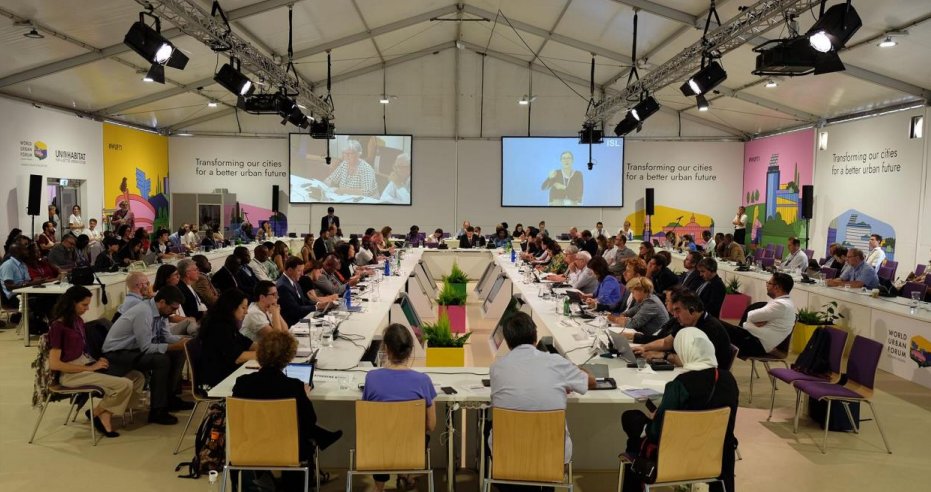
Paul Currie, Associate Director of Urban Systems at ICLEI Africa, shared that “As part of ICLEI’s mandate to lead the coordination, on behalf of the Global Taskforce of Local and Regional Governments, of the three Rio Conventions — those of climate, biodiversity and desertification — and associated processes, ICLEI is investing its own resources in further thematic areas: those of food systems, water and sanitation, oceans and coasts, circular development, and One Health — themes which need more political attention as part of these processes. We invite our partners to join us in these efforts.”
Related Articles: How to Develop More Inclusive and Equitable Cities | How Malmö is Using Innovative Procurement as a Tool for Circular Development
As part of the Urban7 network, ICLEI advocates for the 2022 G7 Presidency Programme to recognise the importance of multilevel governance and the role of cities as key drivers of peace, democracy, and sustainability on equal footing with national governments.
As ICLEI Europe’s Director Wolfgang Teubner argued, urban transformation is not only about implementing technical changes. It requires a cultural change and a people-centered approach.
For Teubner, that means that:
“Urban transformation needs to take into account social equality, otherwise our societies will fall apart before we have managed the transition. We live in an unequal world, not just in matters of Global North and Global South, but also within societies. At the same time, responsible citizenship in the G7 countries means taking a global view. That is why it is so important that the Urban7 takes the perspective of the Global South into account.”
During the session “Unleashing the Transformative Power of Cities for an Equitable World: Urban7 at G7,” participants got to know these perspectives a bit better via insightful interventions from Mayor Manuel de Araujo of Quelimane (Mozambique) and Mayor Jefferson Koijee of Monrovia (Liberia).
These esteemed Mayors pointed to the importance of participatory approaches, and to the power of cities as hearts of democracy.
In the other sessions that were organised and co-organised by ICLEI, a wide variety of topics were addressed. These topics ranged from how data can be used to improve cities and citizens’ lives, to nature-based solutions, to why Urban Resilience policies should not just be responses to individual crises. A full list of session details and highlights can be found here.
Social benefits for sustainability programs were also a focus of the forum. Through an ICLEI-led workshop, tools such as the Equitable Transitions Guidebook and a methodology for mapping social equity through local sustainability plans were introduced. Sessions on climate finance and project preparation were also a focus, including during the Cities Investment Fair where ICLEI showcased SOLAR II – Sustainability for all, a part of the Transformative Actions Program (TAP) pipeline.
ICLEI’s holistic approach highlighted at WUF is necessary. As Matthew Bach, coordinator for Just Transition at ICLEI Europe, noted, “we are between a rock and a hard place. We need to transform our societies quickly to avert a climate disaster. But at the same time we need to make sure that we create an equitable society where no one is left behind.”
This is a challenge only exacerbated by the COVID-19 crisis and the war in Ukraine.
Fortunately, WUF also showed that cities are increasingly taking action into their own hands and producing encouraging results. While there is no “one-size-fits-all” solution, as Rohit Sen, Head of Sustainable Energy at the ICLEI World Secretariat, reiterated, “cities need to work together with all stakeholders to find the right solutions. That includes citizens and behavioural scientists. We can’t build cycling paths in New Delhi and Dhaka and expect that people will use them in the same way as in Amsterdam and Copenhagen.”
— —
To read a full reflection from WUF11, including voices from other ICLEI regions and additional images, click here.
Editor’s Note: The opinions expressed here by the authors are their own, not those of Impakter.com – In the Featured Photo: World Urban Forum 2022 opening ceremony. Photo credit: UN Habitat.


